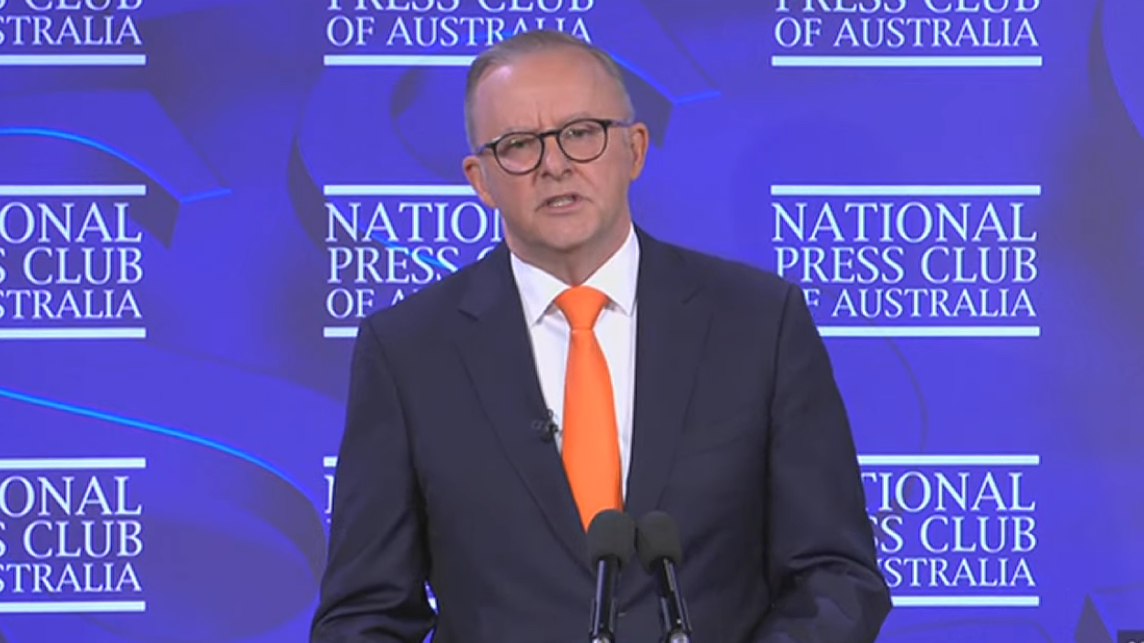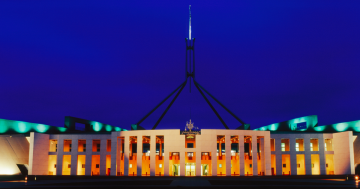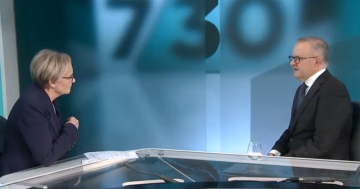
Prime Minister Anthony Albanese announced changes to stage 3 tax cuts at the National Press Club today (25 January).
All Australian taxpayers will pay less tax from July this year due to changes the Federal Government has made to stage 3 tax cuts that were legislated almost five years ago.
But high-income earners will only get half of the tax relief that Scott Morrison promised and which Labor vowed to honour.
Declaring that changed economic circumstances warrant a reverse in policy and the breaking of an election promise, Anthony Albanese told the National Press Club on Thursday (25 January) that all Australians needed tax relief.
The changes to stage 3 will take the focus away from higher income earners to include tax cuts for all, in what the Prime Minister said was a shift towards middle Australia.
“I understand people are under financial pressure,” Mr Albanese said.
“Australians have been living through the economic aftershock of the pandemic, the first recession in three decades, and the ongoing, far-reaching consequences of Russia’s invasion of Ukraine.
“An unprecedented combination of global inflation and damaged supply chains has pushed up interest rates, putting pressure on family budgets.
“Everything we have done as a government has been about managing those competing forces … and so we have room in the budget to provide more support to Australians.”
From 1 July, the 19 per cent tax rate will be reduced to 16 per cent for incomes between $18,200 and $45,000.
The 32.5 per cent tax rate will be reduced to 30 per cent for incomes between $45,000 and the new $135,000 threshold, which will increase from $120,000, meaning the 37 per cent tax rate applies from $135,000.
The threshold at which the 45 per cent tax rate applies will increase from $180,000 to $190,000.
The changes mean 2.9 million more taxpayers will receive a larger tax cut than they would have under the already legislated stage 3 plan and 84 per cent of taxpayers (11.5 million people) will receive a bigger tax cut compared to the old plan.
A person with an average income of $73,000 will get a tax cut of $1504, which is $804 more than they were going to get.
Those earning $40,000 will get a tax cut of $654. Under the stage 3 plan legislated half a decade ago, they would have received nothing extra.
Someone earning $100,000 will get a tax cut of $2179, which is $804 more than they would have received.
In fact, all taxpayers earning between $45,000 and $135,000 will get an extra $804.
Those earning $200,000 will still get a tax cut, but it has been reduced from $9,075 to $4,529.
“Today, I announce that from the 1st of July this year, our government will deliver a tax cut for every Australian taxpayer,” the PM said.
“All 13.6 million taxpayers, not just some. Everyone who works and pays tax will benefit.
“This is a plan for middle Australia that delivers for every Australian taxpayer, right up and down the income ladder.
“Helping with the cost of living, nourishing aspiration and boosting participation. Strengthening the connection between hard work and fair reward.
“Because we want people to earn more and we want them to keep more of what they earn.”
For a family with an average household income of around $130,000, with one partner earning $80,000 and the other $50,000, their combined tax cut will be just over $2600.
The government also released advice from Treasury saying the changes will not adversely impact inflation.
“This option is broadly revenue neutral, will not add to inflationary pressures and will support labour supply,” the advice states.
The Reserve Bank of Australia has also advised that it didn’t expect there to be any implications for its inflation forecasts.
The Prime Minister had to bat away numerous questions about his change of mind and the implications to his own integrity.
He repeated that the overhaul was necessary in response to the changed economic circumstances facing Australians and would make the tax system fairer and more inclusive.
“I want to be known as the prime minister who had the ticker to do what’s right,” he said.
The changes need to be legislated, with bills to be introduced to parliament in the first weeks of sitting.
The Opposition has vowed to assess the proposals and fight at least some elements of it.
It is set to take the PM to task over his backflip, describing it as a “treachery against the Australian people”.
“Our position is that the stage 3 tax cuts should be implemented as designed and endorsed by the Australian people,” Deputy Opposition Leader Sussan Ley said.
“That was Anthony Albanese’s position.”




















